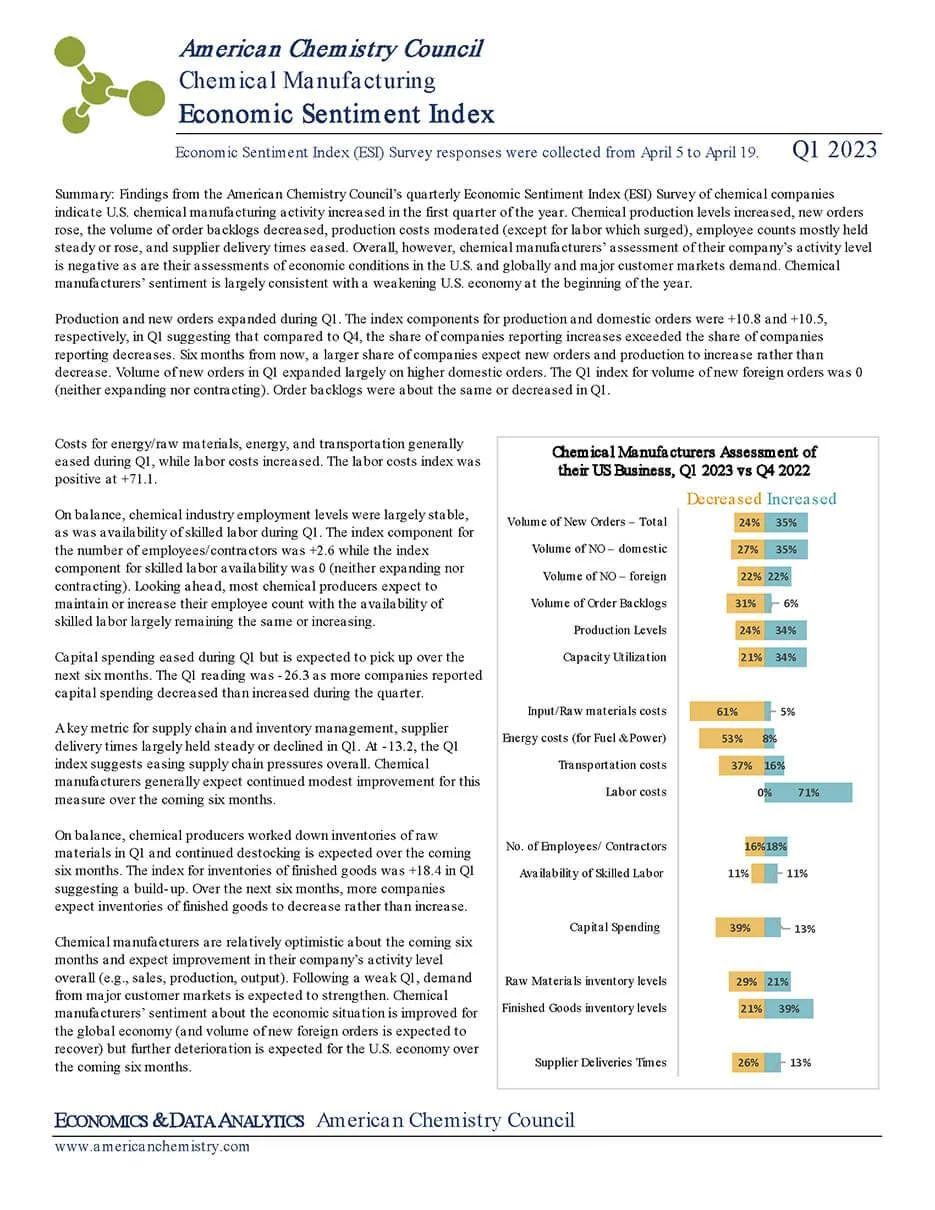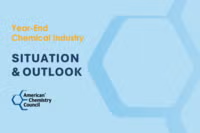Uncertainty about the future of the economy remains a top concern for most Americans and a driving force in Washington. While there are plenty of indicators used to predict where the economy is headed next, conditions within the chemical manufacturing sector can be a useful bellwether.
To help get a snapshot of what things look like for the chemical industry the American Chemistry Council (ACC) launched a new tool called the Economic Sentiment Index (ESI) Survey.
What is the Economic Sentiment Index?
The ESI is a quarterly index that ACC created to help better understand the state of the chemical industry. The index captures the collective perspective of member companies regarding their business activities, customer market demand and the economic situation in the current quarter, and their expectations for the coming six months.
The ESI is a composite index comprised of several sub-components that track changes in chemical manufacturers’ perspectives on key business variables including:
- Business activity (new orders, production levels)
- Costs (inputs, energy, transportation, labor)
- Labor (levels, availability)
- Capital (spending)
- Inventories
- Supplier Deliveries Times
How are companies feeling about the direction of the economy?
They expect global economic conditions to stabilize somewhat in the second half of this year with about half of companies expecting more of the same and an even split between those expecting improvement or deterioration in economic conditions.
What are the big takeaways?
- Future Demand: US chemical manufacturers anticipate an improvement in demand from major customer markets and improvement in their own company’s activity level overall (e.g., sales, production, output) by the end of Q3 2023. They see gains in key business variables including output indicators like volume of new orders and production levels.
- Investment: Almost half of the companies surveyed expect to see an increase in capital spending in the second half of this year.
- Outlook: Chemical manufacturers’ sentiment about the economic situation improved for the global economy but further deterioration is expected for the U.S. economy in the coming months.
- Bellwether: Cautious optimism amongst chemical manufacturers is something to watch because chemical industry activity is a good predictor of future economic activity given the industry’s position early in the supply chain for many economic segments.
What should Congress and the White House do?
The chemical industry is at the headwaters of the economy. Chemicals are essential for growing food, producing energy, delivering safe drinking water, and making life-saving medicines and equipment. Chemical manufacturing is also crucial to supporting national priorities, including energy independence, and competing with other countries in critical technologies, such as producing world-class semiconductors and batteries, components, and infrastructure for electric vehicles.
To move production back to America from places like China, we must manufacture and move more chemicals in America. Policymakers can help by improving EPA’s chemical management program to support critical uses of existing chemicals as well as the development of innovative chemistries. Similarly, reforming the country’s permitting program would help bring more American manufacturing online. It is also important that we fix problems that will help remove barriers in the supply chain by adopting modern transportation policies for freight rail, ocean shipping and trucking.



